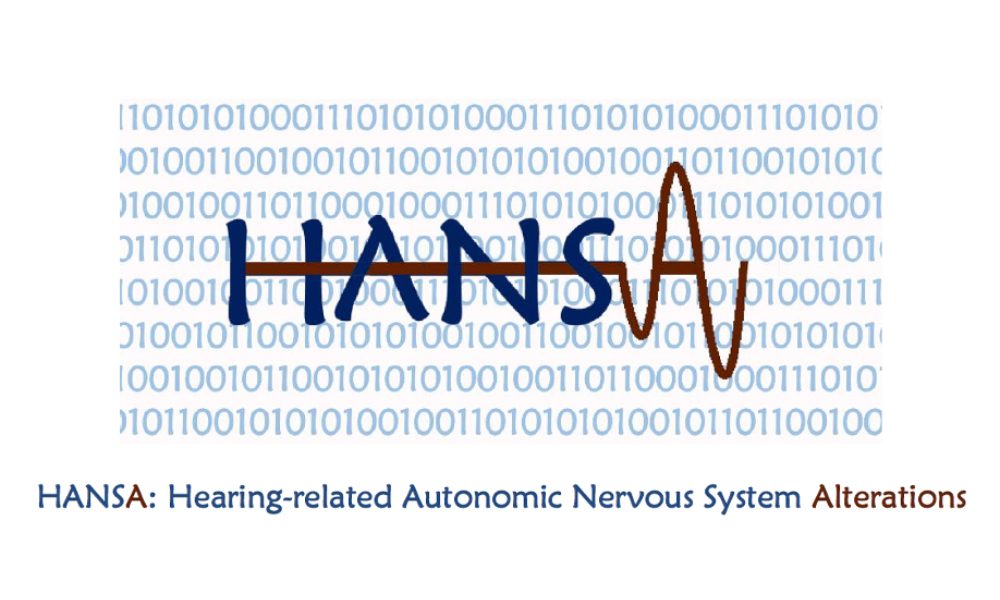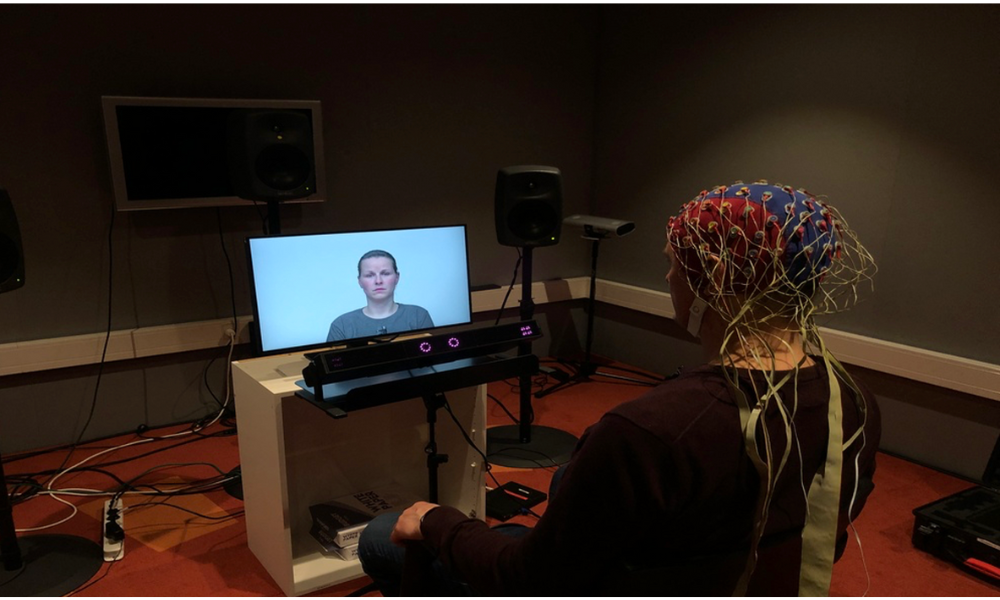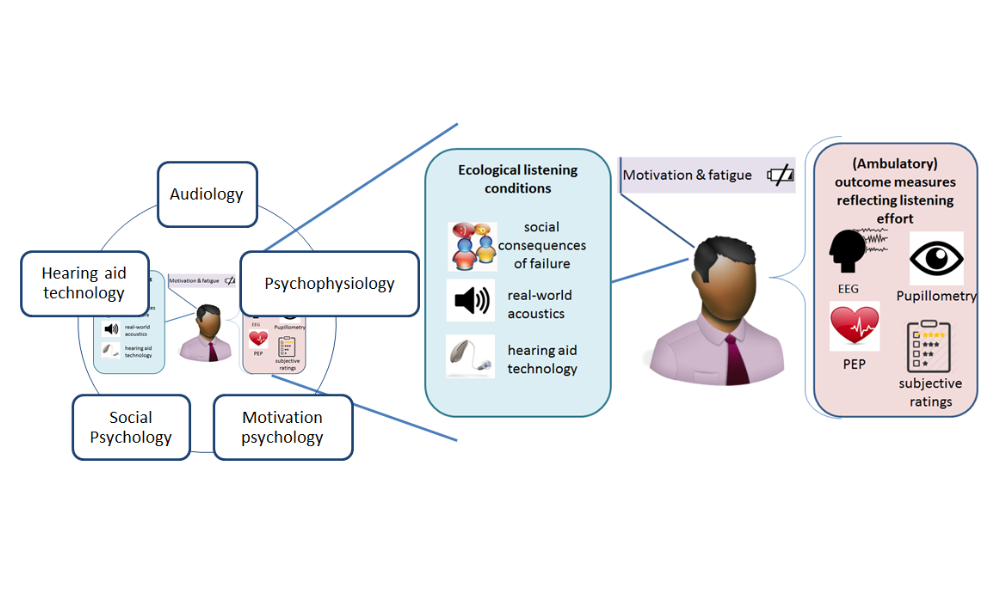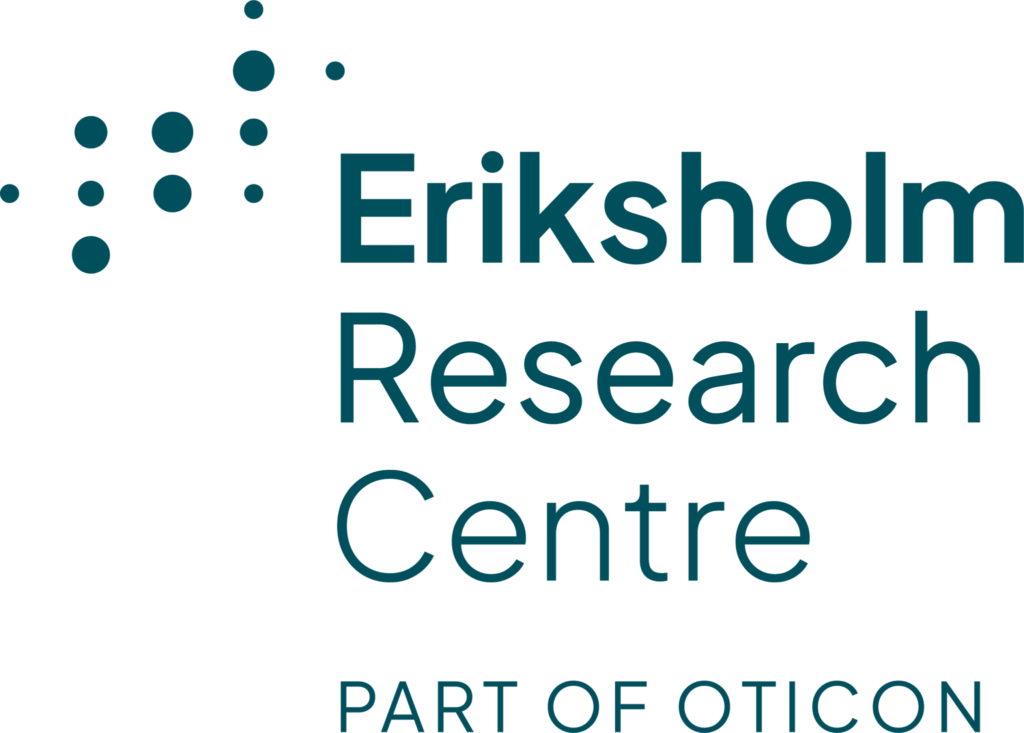Introduction
Hearing loss is associated with increased listening effort, subjective fatigue and stress in daily life, which can lead to social isolation, cognitive problems, lost employment opportunities and a poor quality of life. More insight into daily-life hearing difficulties is needed in order to develop diagnostic methods sensitive to assess hearing-related stress in daily-life and evaluate hearing rehabilitation strategies. Research has demonstrated that the effort required during speech perception can be assessed using such as the pupil response and cardiovascular measures.
Several studies have specifically assessed the effect of hearing loss on these physiological biomarkers. A consistent finding is that hearing loss is associated with an atypical task-evoked pupil dilation response, i.e., a smaller pupil response has been observed for people with hearing impairment, even when accounting for listening performance. This might suggest a deviant response of the Autonomic Nervous System (ANS) which is one of the major neural pathways activated by stress. However, it is currently unknown how hearing loss may impact those physiological markers of listening effort and how this is related to listening-related stress as experienced in daily life of hearing ai users.
Aims
Identification of the nature of the impact of hearing loss on ANS functioning could provide important understanding of the cascading effects of hearing loss. Eventually, identification of the physiological signature of ANS dysfunction related to hearing loss can be used in the diagnosis of hearing loss. Furthermore, these biomarkers can be used as outcome measures in the evaluation of hearing rehabilitation such as hearing aids. Hearing rehabilitation that compensates for the effect of hearing loss on the identified parameters will be most effective in targeting the adverse effects of hearing loss in daily life.
The project aims to better understand how subjective measures of stress as well as physiological measures (e.g., pupil size) is associated with subjective fatigue, hearing loss, and personality differences. For example, we will study the relationship between hearing ability and motility and whether hearing loss is related to poor mobility.





